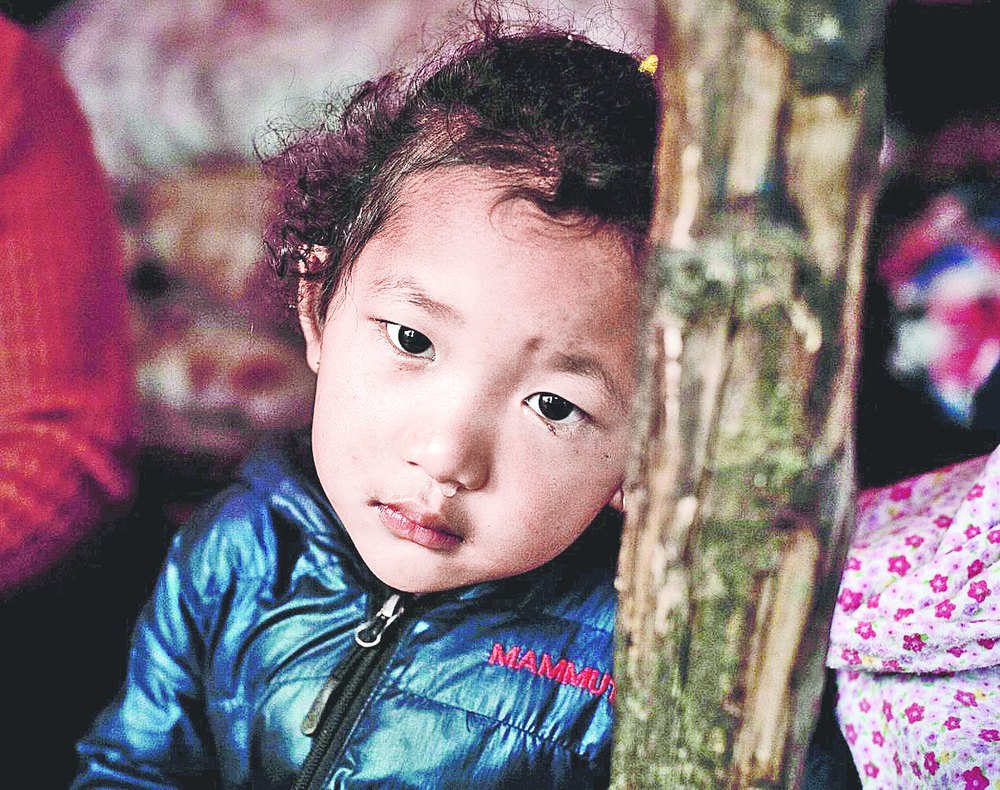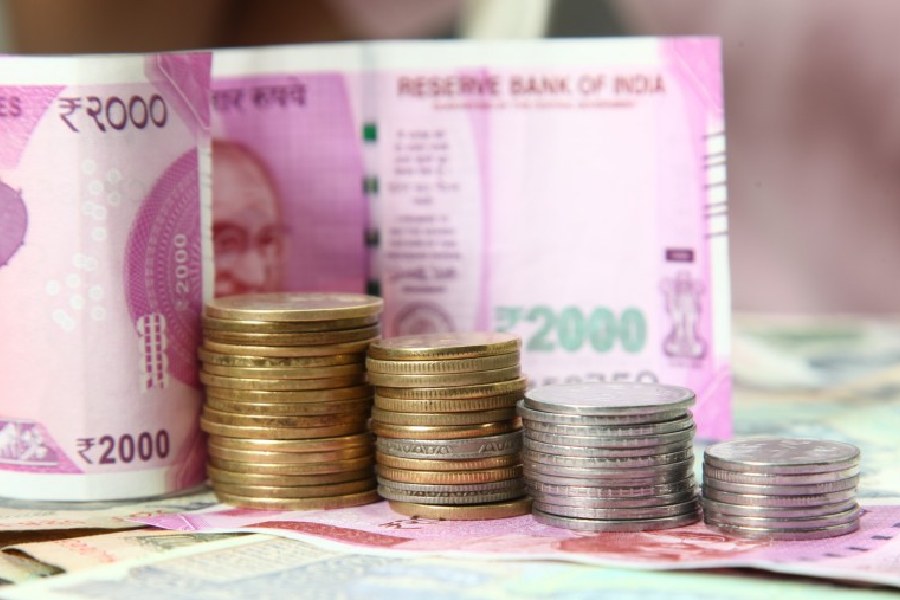
her earthquake-ravaged house in
Nepal's Barpak village on Monday.
(AFP)
New Delhi, May 5: The Uttar Pradesh home department has asked police chiefs of all districts bordering Nepal to keep an eye on "entries" of children and women from the quake-ravaged country, following concerns that focus on humanitarian efforts had left this vulnerable section more susceptible.
The move followed a letter from Shakti Vahini, a Delhi-based non-government organisation working with trafficking victims, to the Union home ministry and all states that border Nepal.
The concern doesn't seem misplaced.
An unofficial estimate of an NGO in Kathmandu says that, at any point of time, brothels in India house around 1.5 lakh to 4 lakh girls from the Himalayan country.
Most girls trafficked from Nepal land up in brothels in Nagpur, Mumbai, Pune, Siliguri, Calcutta, Surat, Delhi, Bangalore, Gorakhpur and Meerut. Victims are also being increasingly re-routed to Gulf countries and China, activists say.
With the earthquake leaving many women and children without any protection, activists fear the number of trafficked victims is likely to swell.
"While, understandably, the focus of most aid agencies is on the humanitarian efforts, women and children are left completely vulnerable. But we are working relentlessly to ensure that no child or woman falls through the cracks," said Biswo Khadka, director, Maiti Nepal, a non-profit organisation founded in 1993.
NGOs working in the region have come together to try and seal the 1,800km open border with India that citizens can cross without travel documents or work visas. "We are taking in as many girls as we can to ensure that they don't fall into the hands of traffickers. Our volunteers are in hospitals and police stations, many child rights NGOs have come together to act as gatekeepers, stationing volunteers at transit points," Khadka said.
In India, too, activists have sounded the alert. "There is already a huge demand for Nepalese women in India. Not just for prostitution, but also for massage parlours," said Rishikant, of Shakti Vahini.
"Every state which shares a border with Nepal should check the credentials of girls coming into the states before letting them in. Once they are allowed to come into India, they are lost in the labyrinth of the flesh trade," he added.
The Uttar Pradesh home department's letter to police superintendents says: "In view of the earthquake in Nepal, all districts of the state near... the Nepal border should be... alert about entries of young children and women from Nepal into the state."
The Telegraph has a copy of the letter dated April 30.
Sunita Danuwar, once a victim of trafficking and now the founder member of Shakti Samuha, a Kathmandu-based organisation, could not be reached for comment but her tweets revealed that her priority was to get young homeless girls to safety.
"We brought survivors from Sindhupalchok shelter home yesterday and now they all are safe... so I am praying," she tweeted on Thursday from northern Nepal, on the country's border with China and one of the worst affected by the quake.
Asha Nepal, a Kathmandu-based NGO for trafficked victims, tweeted how it was preparing to take in girls left orphaned by the temblor. "We are preparing to take in extra girls who may not have homes to return to. Food and water remain a concern," the organisation's Twitter handle said in a post on April 28.
This is not the first time that activists and aid agencies have voiced such fears after natural disasters.
According to activists, survivors housed in relief camps in Bhuj, Gujarat, after the January 2001 quake had become highly vulnerable to trafficking and sexual exploitation.
In a report after the 2004 tsunami, the UN's Division for the Advancement of Women said many women who had lost their families had been trafficked.
According to a Unicef report, 2,500 children were trafficked in north Bihar following damages caused by heavy rain in 2007.
In 2008, activists said, many children were trafficked after the Kosi floods that affected 3.5 million people in Bihar.










